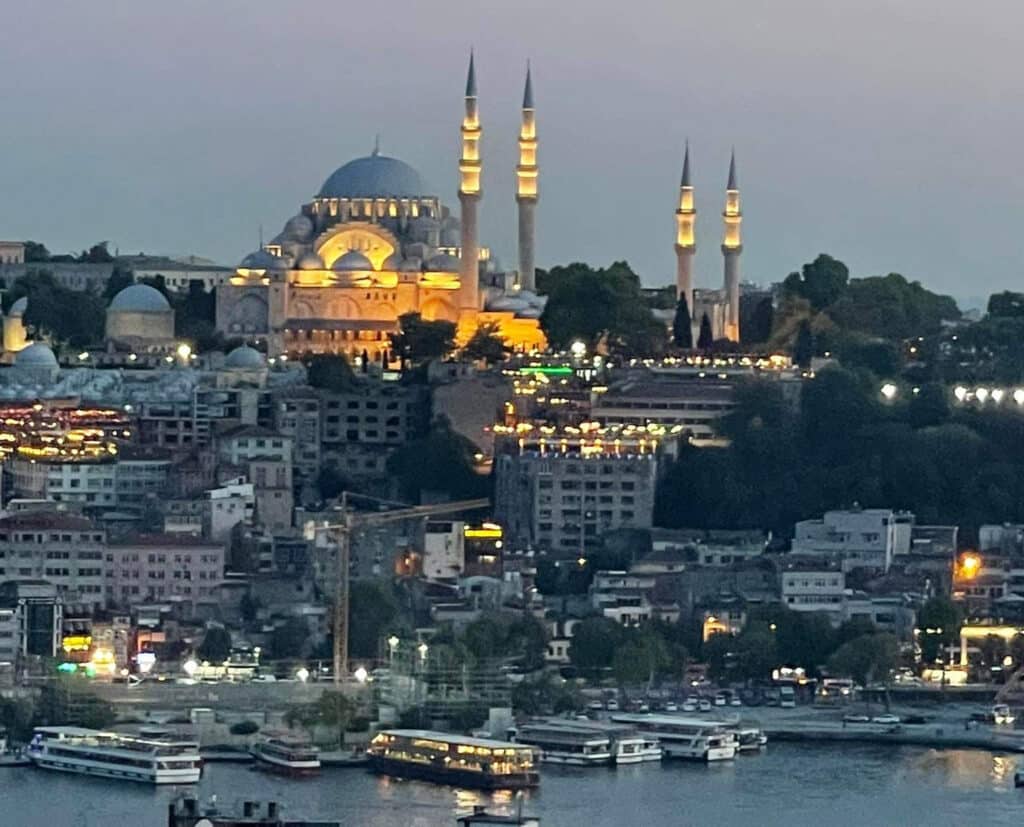Jump to:
The Forum on Architecture, Spirituality, and Culture will host its 2024 annual international symposium in Istanbul, Turkey. With its blend of East and West, the city embodies the very themes we seek to explore: Resonance of the Past, Spirit of the Future: Exploring transcendent unity in a world of multiplicity. The symposium’s venue, surrounded by the architectural wonders of Istanbul, will serve as a living laboratory where theory and practice converge.
Our 14th Annual meeting will take place June 5-9, 2024, when we will gather at the Kalyon Hotel, where all symposium activities (save for exploration of Istanbul) will take place, including meals and lodging. Located in the Sultanahmet district of Istanbul, this hotel offers a peaceful retreat away from the bustling tourist crowds. Unlike the more touristy parts of Sultanahmet, this hotel allows guests to experience the authentic charm of the area. The convenient proximity to the iconic Hagia Sophia and Sultanahmet Mosque will allow us to embark on a spiritual journey through the heart of Istanbul, where the confluence of mystical thinking echoes across centuries. Small groups of 8 to 10 symposium participants will be guided by an expert, as they explore the tapestry of this ancient city’s history and culture.
Weatherwise, early June is pleasant in Istanbul. High temperatures are in the mid to upper 70sF (22-24C) that then fall to the lower 60s (15-17 C) during the night.
ACSF 14 will be structured around a main topic (“Resonance of the Past, Spirit of the Future”) but is also open to ideas, works, and proposals relevant to the Forum’s areas of interest. We will keep the number of attendees below 75 to maintain an intimate and dialogical atmosphere. As usual, ACSF strives to assemble a distinguished panel of keynote speakers whose work aligns with the theme of the symposium. This year, we are anticipating the participation of renowned Turkish architects and scholars who will articulate the central themes, bridging historical foundations with forward-looking ideas in exploring transcendence. The roster of speakers will be updated at a later date. Of course, as is in past symposia, the final evening will be dedicated to presenting the ACSF Outstanding Achievement Award followed by the recipient’s keynote address (something we won’t know until late March 2024).
Established in 2007, the Architecture, Culture, and Spirituality Forum provides an international forum for scholarship, education, practice, and advocacy regarding the cultural and spiritual significance of the built environment. ACSF believes that the design and experience of the built environment can assist the spiritual development of humanity in service of addressing the world’s most pressing issues.

Resonance of the Past, Spirit of the Future: Exploring transcendent unity in a world of multiplicity
In an era where digital technologies are reshaping the very essence of architecture, the fusion of tangible and intangible cultural heritage with spirituality offers a rich tapestry of exploration. The proposed symposium seeks to delve into the captivating nexus between architecture, culture, and spirituality, with an emphasis on the transformative role of digital technologies in both education and practice. Set against the majestic backdrop of Istanbul, a city straddling the crossroads of civilizations, this symposium aims to unravel the profound interplay of tradition and innovation.
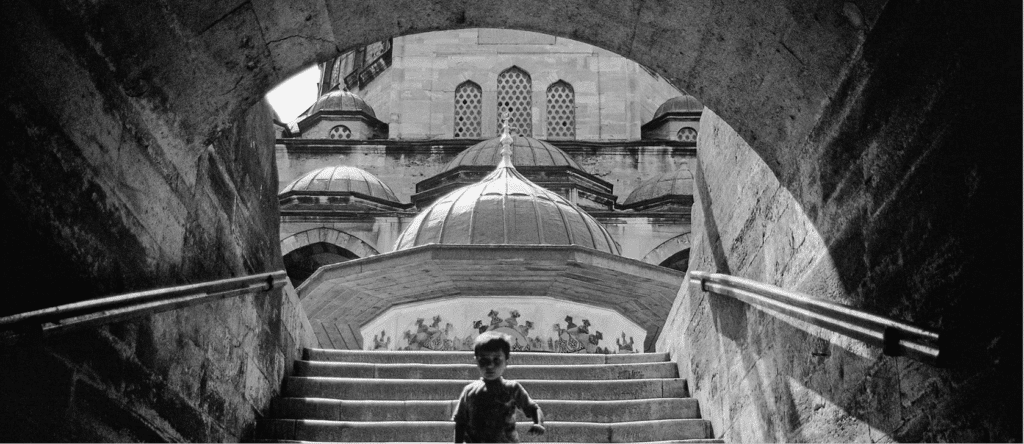
Our 14th Annual meeting will take place at the Kaylon Hotel that is located in the Sultanahmet district of Istanbul. This urban area offers a peaceful retreat away from the bustling tourist crowds. The hotel is located in a flat area perfect for leisurely strolls, while the Marmara Sea’s presence right at its doorstep provides a calming backdrop. Unlike the more touristy parts of Sultanahmet, this hotel allows guests to experience the authentic charm of the area. The convenient proximity to the iconic Hagia Sophia and Sultanahmet Mosque, just a 12-15 minute light walk away, ensures that we can explore these historic landmarks with ease during our stay.
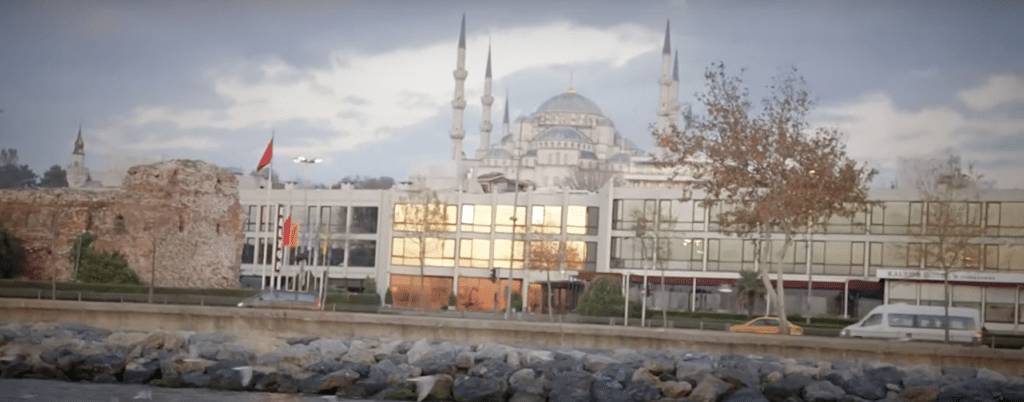
The cost of the Symposium will be as follows:
This symposium fee will cover the following:
Total cost per person (couple): US$ 750
Regarding the hotel, please refer to “Location” above. This section has to do with having booking priority for the said accommodations. Those who have submitted an abstract will be notified of their acceptance by February 19th after which you will have two weeks to confirm your participation and one more week to register on-line prior to the rooms becoming available to the remaining ACSF membership and public at large. All bookings and registration will be available online through ACSF. Please do not contact the hotel directly. Thank you for your cooperation.
Multiple international airlines fly to/from Istanbul, Turkey. Prices vary depending on your place of origin and how early you purchase your tickets. At this time (early October 204), roundtrip prices from the East Coast of the U.S./Canada to Istanbul for early June are around $1,300, and from the West Coast of the U.S./Canada are about $1,800. Flying from Europe ranges from $200 to 300 (e.g., London, Berlin). Flights from Mumbai are around $650. The Kaylon Hotel provides shuttle transportation to and from the Istanbul airport at an additional cost. Alternatively, participants have the option of utilizing taxi services or other apps like Uber for their convenience.
Weatherwise, early June is pleasant in Istanbul. High temperatures are in the mid to upper 70sF (22-24C) and then fall to the lower 60s (15-17 C) during night time.
To view a draft of this year’s program, please click here.
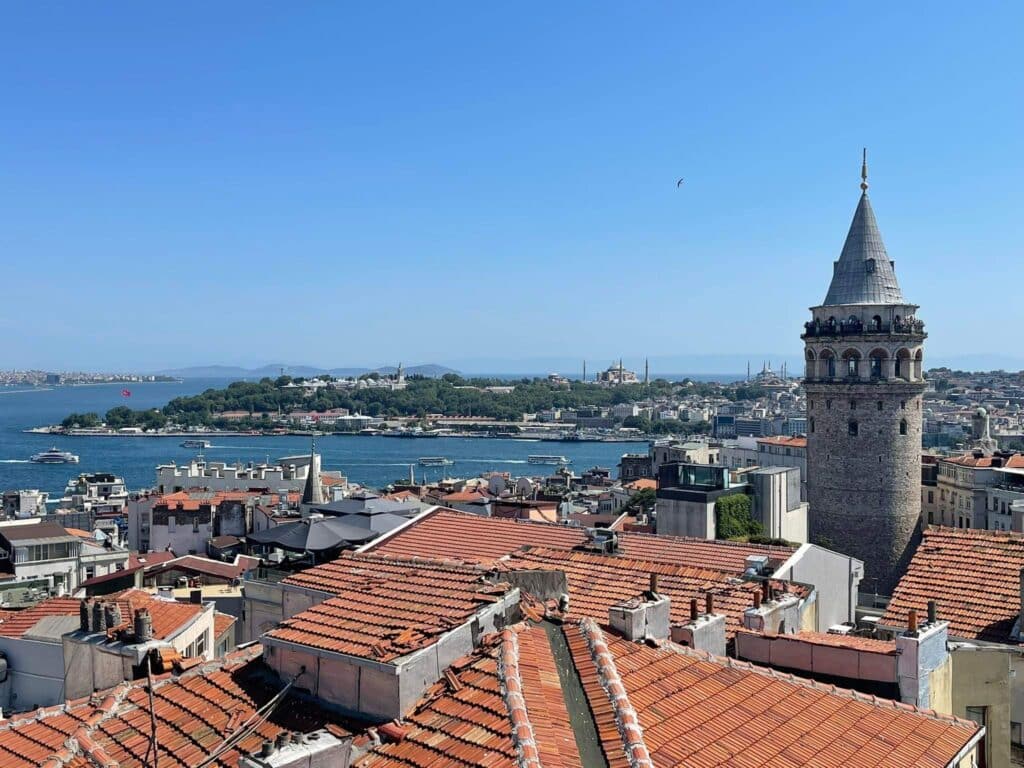
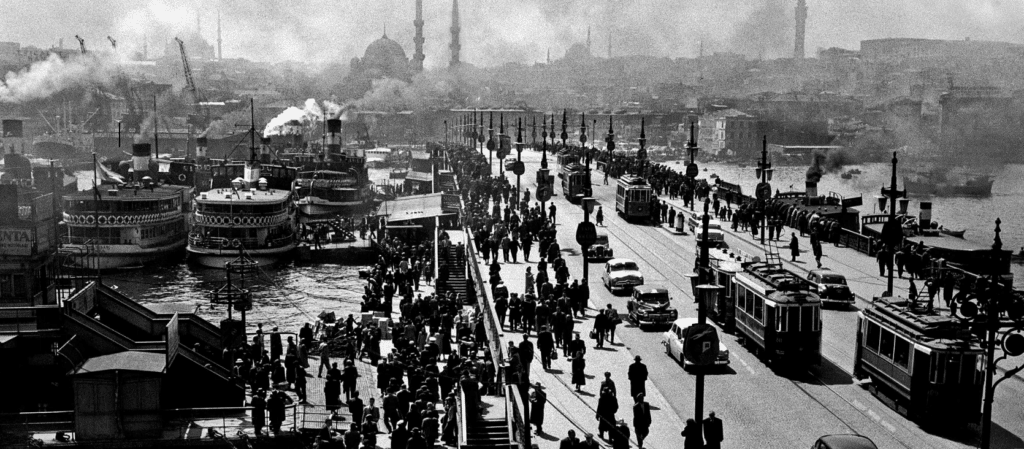
NOTE: Proposals for participation are no longer accepted (the deadline was January 15, 2024). Accepted works (projects, papers, and workshops) are now being finalized for e-publication and presentation. We expect that the selected works will elicit a vibrant interdisciplinary dialogue among teachers, artists, scholars, designers, theoreticians, and practitioners. Topics of particular interest will include: the interplay of tradition and technology, as architects harness digital means to reinterpret historic architecture; the confluence of cultures and their influence on architectural identity, especially as seen in the melting pot of Istanbul; the profound spiritual undertones in architectural design, inspired by traditions like Sufism and Orthodox Christianity; and finally, the nuances of architectural restoration and reuse emphasizing sustainable transformation and reimagining of sacred spaces. Join us in this exploration and contribute to shaping the architectural discourse for the future bridging tradition and innovation. For more on the theme, see “Resonance of the Past, Spirit of the Future: Exploring transcendent unity in a world of multiplicity.”
Blind Peer Review Process: January 16 – February 12, 2024 (completed)
Feedback to authors (acceptance/rejection): February 19, 2024 (completed)
Deadline to confirm author participation: March 4, 2024 (ended)
Room Reservation deadline for Authors (payment due): March 25, 2024 — Full information will be delivered along with February 19 feedback. (after this date, rooms will be open to non-author attendees)
Submission of revised proposal for online publication: April 22, 2024
Final symposium scheduling + e-publication available: May 24, 2024
ACSF14 Symposium starts: June 5, 2024, in Istanbul, Turkey
For registration, this is a first come, first serve opportunity with limited room, we are able to accommodate approximately 30 more registrations for participants. The Symposium fee is a flat rate of $425 USD, and lodging is not included. This will provide for all symposium activities during the day, and all meals, but registrants are asked to book their lodging independently of symposium registration (either at Kalyon hotel or nearby).
Please use the following forms to register for the 2024 ACSF 14 in Istanbul. Once you have filled out the forms, use the link on the confirmation page to pay the required fee and costs.
The symposium will begin Wednesday evening (June 5th) and end on Sunday evening (June 9th) with drinks and dinner. The symposium fee of $425 covers access to ALL conference functions including workshops (Thur & Fri), four lunches, five dinners including dinner outside the hotel, breakout session snacks and drinks, five social hour drinks and wine for dinner, Old City Sacred Sites Tour on Sunday with lunch, and ACSF fee ($25).
If you have dietary needs/choices, please fill out the appropriate form accordingly.
Refunds policy for cancellations:
The registration process starts with your review and acceptance of the ACSF Symposium Code of conduct.
Any questions? Please email the organizing team acsf14Istanbul@gmail.com
—
ACSF Symposium Code of Conduct & Ethics of Fellowship
We welcome all participants in a spirit of curiosity, respect, and compassion. Our symposia are safe and supportive places where diverse views and personal boundaries are mutually respected. Read the ACSF Symposia Code of Conduct and Ethics of Fellowship for further information.
